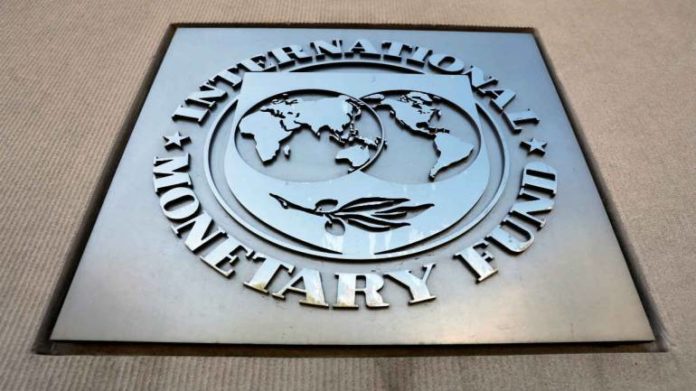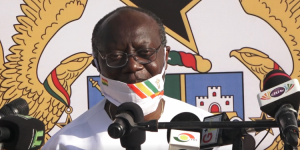The International Monetary Fund says Ghana will not default in repaying its debt because of its strong track record of servicing its debts to the Fund, despite risks to country’s capacity to repay increasing.
It however stressed that Ghana needs support from the Fund due to the uncertainty about the course of the Covid-19 pandemic and high debt vulnerabilities.
The Directors of the Fund who worked on the “Article IV Consultation Document” highlighted Ghana’s strong track record with official and commercial creditors, continued commitment to macroeconomic stability, and the nation’s view of the Fund as a trusted advisor and development partner.
They also emphasized that Ghana’s sovereign ratings remain stable and that Eurobond spreads had reverted to their pre-pandemic levels. This, in the Directors view, represents a mark of investor confidence.
“Ghana’s strong track record of servicing its debts to the Fund, the expected recovery from the pandemic [Covid-19], the commitment to fiscal discipline over the medium-term, and the potential for Ghana’s exchange rate to act as a shock absorber, all suggest that repayment risks are contained”, the Fund’s statement mentioned.
“For example, in the downside scenario above, scheduled repayments to the Fund would peak in 2026 at 1.1% of exports, 5.1% of reserves and 6.1% of external debt service, still within Ghana’s capacity to repay. In addition, a possible SDR [Special Drawing Rights] allocation this year could further strengthen reserves, while a more ambitious fiscal adjustment, as discussed below, would help reduce debt vulnerabilities”, it pointed out.
“At the same time, the uncertainty about the course of the pandemic and high debt vulnerabilities mean that financing needs could increase and additional official support could be needed, including from the Fund”, it added.
Ghana classified as highly risk debt distress country
The Fund classified Ghana as a highly risk debt distress country.
The Directors therefore welcomed the fiscal adjustment envisaged in the 2021 budget, adding “they stressed that fiscal consolidation is needed to address debt sustainability and rollover risks, as Ghana continues to be classified at high risk of debt distress.”
To protect the most vulnerable, the report said considerations could be given to more progressive revenue measures and a faster return to the pre-pandemic level of spending, with a shift towards social, health, and development spending.
The Directors also encouraged the timely completion of the planned audit of COVID-19 emergency spending and new expenditure arrears.
Medium-term prospects remain favorable
The Fund also said the medium-term prospects remain favorable, driven by opportunities in digitalization, structural transformation, and the expansion of extractive industries.
However, it said “the ongoing recovery is threatened by possible new pandemic waves and rising debt vulnerabilities, including large financing needs that leave government exposed to rollover and solvency risks.”
Monetary policy stance broadly appropriate
The Directors agreed that the monetary policy stance remains broadly appropriate, while noting that tighter policy would be needed if inflationary pressures materialize.
Although gross international reserves are relatively high, the Directors stressed the need to guard against erosion of external buffers and remain committed to a flexible exchange rate regime.
They also encouraged the government and the Bank of Ghana to limit monetary financing of the deficit.
The Directors also noted that the financial sector cleanup had made the sector more resilient but stressed that banks’ growing holdings of sovereign debt creates risks and crowds out private sector credit.
In this regard, they took positive note of ongoing supervisory and regulatory reforms, which are important steps to protect financial stability.
The Directors also welcomed the improvements in the AML/CFT framework that allowed Ghana to exit the FATF “grey list”.







